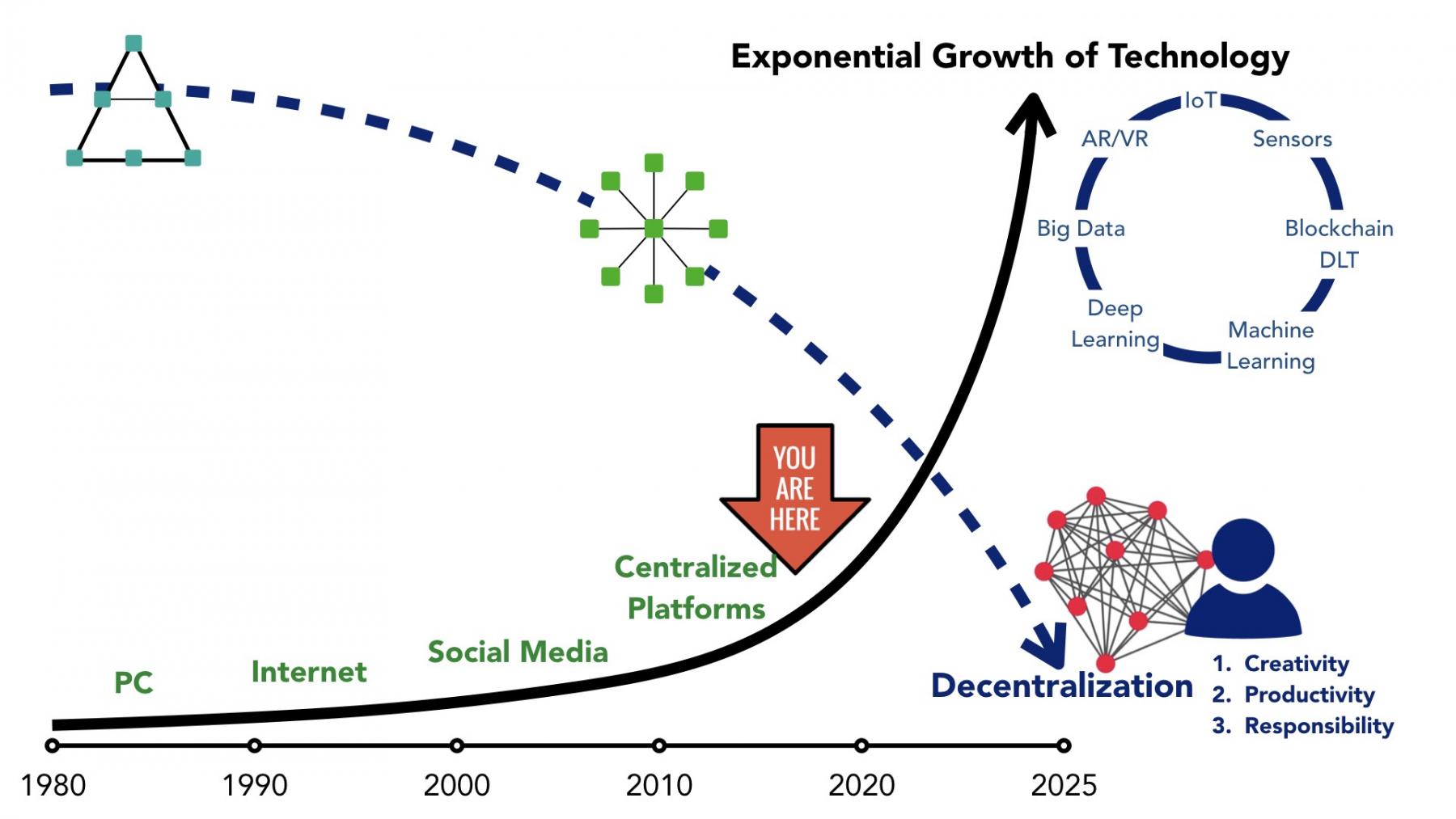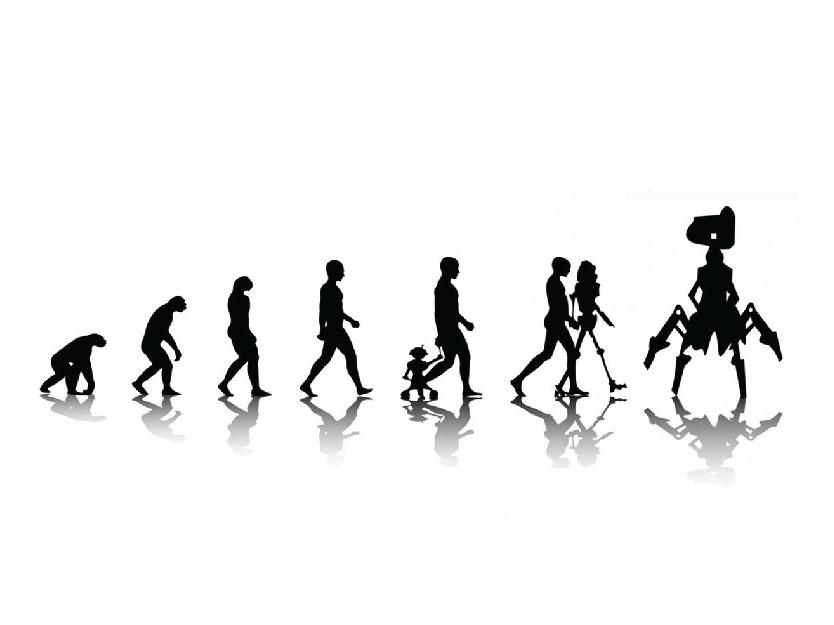The connection between productivity and workload was mentioned to me at a conference recently, and I have been thinking about it ever since.
It is deliciously counter-intuitive. At one level, it makes no sense. Surely, a “busy person” is the last person you want for getting something done. And yet, when I discussed this suggestion with friends and colleagues, they all agreed that there is something to this advice. Particularly in the context of our technology-driven, decentralized world.
But thinking about why this is so is much trickier. I don’t have a definitive answer but here are some initial thoughts.
Technology, Disruption, Decentralization
The exponential growth of digital technologies has been hugely disruptive of the centralized organizations and systems that dominated twentieth-century economic and social life.
Most obviously, information technology has transformed how organizations operate. The effect of this continued disruption has been to break down traditional hierarchies and established roles and procedures. All organizations now exist in a continuous state of flux as they struggle to accommodate successive waves of new technology.
The expansion of networked devices has further accelerated this paradigm shift towards a flatter, more decentralized world. The Internet has facilitated the emergence of new “platform” companies, such as Spotify and Airbnb, that challenge traditional ways of operating. The powerful “middlemen” (intermediaries) that previously dominated the music, hotel, and most other industries have been particularly affected.
Looking at recent developments in blockchain and distributed ledger technologies, artificial intelligence, sensors, and automation, this process of redistributing activities, functions, and operations away from centralized authorities will undoubtedly continue.
“Disrupted from within and challenged from outside, digital technologies are changing everything.”

A Digital Life
The reason why “we” (consumers, the general public) are quick to embrace the decentralization trend is straightforward. At their best, centralized systems are slow and bureaucratic. They are heavily reliant on authorized procedures and processes (which are necessary to build and maintain trust and some degree of transparency). At worst, however, such systems are prone to error, corruption, and hacking.
Of course, I don’t deny that the old centralized world and its legacy effects are still everywhere. But things are slowly changing, and new technologies promise a faster, more transparent and dynamic world. More inclusive and fluid communities are replacing centralized hierarchies.
And here we arrive at the critical point: the digital transformation affects all of us at a personal level. It isn’t just some abstract change, far removed from our everyday lives.
Here are three very tangible effects of living and working in the decentralized world of tomorrow.
#Creativity
Technology disrupts, and this disruption opens up new opportunities. Grasping these opportunities demands creativity as existing templates are unlikely to succeed.
This creativity means different things for different people. It can mean creativity in building a unique “career” or lifestyle, or it can mean greater creativity in the workplace.
Perhaps this is where the real power of decentralization, communities, and networks lies. Working in an open, flat, and “best-idea-wins” culture provides strong incentives to become more creative.
Moreover, new technologies eliminate borders and geographical and cultural distance. And such inclusivity makes communities/networks much more efficient and effective.
“The power of decentralized communities/networks lies in diversity and inclusiveness.”
The ability to share, collaborate and build on each other’s ideas and work can result in an unprecedented level of creativity, which could eventually help solve the world’s most pressing problems.
#Productivity
Decentralization, creativity and community/network thinking will lead to greater productivity. Legacy systems, intermediaries and processes tend to slow things down.
In decentralized systems, people can share their work and express themselves instantly. Direct feedback and dialogue also mean that we continually improve ourselves and our work.
#Responsibility
But new technologies alone are never going to be sufficient. We all must be willing and able to accept the new “order.”
And here I don’t only refer to the access to the technology or being tech-literate. It goes much further than that. We have to become “responsible” users of technology and “responsible” members of the new communities and networks. We must be more committed, engaged and involved in this emerging world and its new values.
All of this requires a change of mindset. Most of us have been educated and prepared for a world of centralized systems. We understand the importance of hierarchies, procedures, and processes. But in a decentralized system, the “will to please” an organization/system must be replaced by both “individual” and “collaborative” creativity.
We must learn to become responsible collaborators. We must learn to be supportive and critical. Self-learning and critical thinking are necessary skills to make sure the community/network works as it is supposed to do. We cannot hide behind an organizational veil of procedures and processes. We must be active and responsible members who are visible and be able to think out of the box.
Get Busy!
And this brings me back to the original question:
“Why is a busy person the best person to turn to when you want to get something done?”
The central principle of a decentralized, digital world is freedom and responsibility. A genuinely busy person gets this. They understand the power of being “active,” “collaborative,” “critical.”
A busy person is just more closely aligned with the values of a digital world. They embrace the possibilities and opportunities that are out there and, as such, they are more likely to offer better solutions to the problems of a fast-changing world.
A genuinely busy person may have “less time” than others, but they have something that is far more important than free time. They have a deep and intuitive understanding of the values and needs of a rapidly decentralizing world.
This understanding is the key to being successful in the digital world of tomorrow. And that is why we turn to a busy person when we want something done.
This article was taken from hackernoon.com.
Photo by Denin Williams on Unsplash.

 4.8
4.8 






















